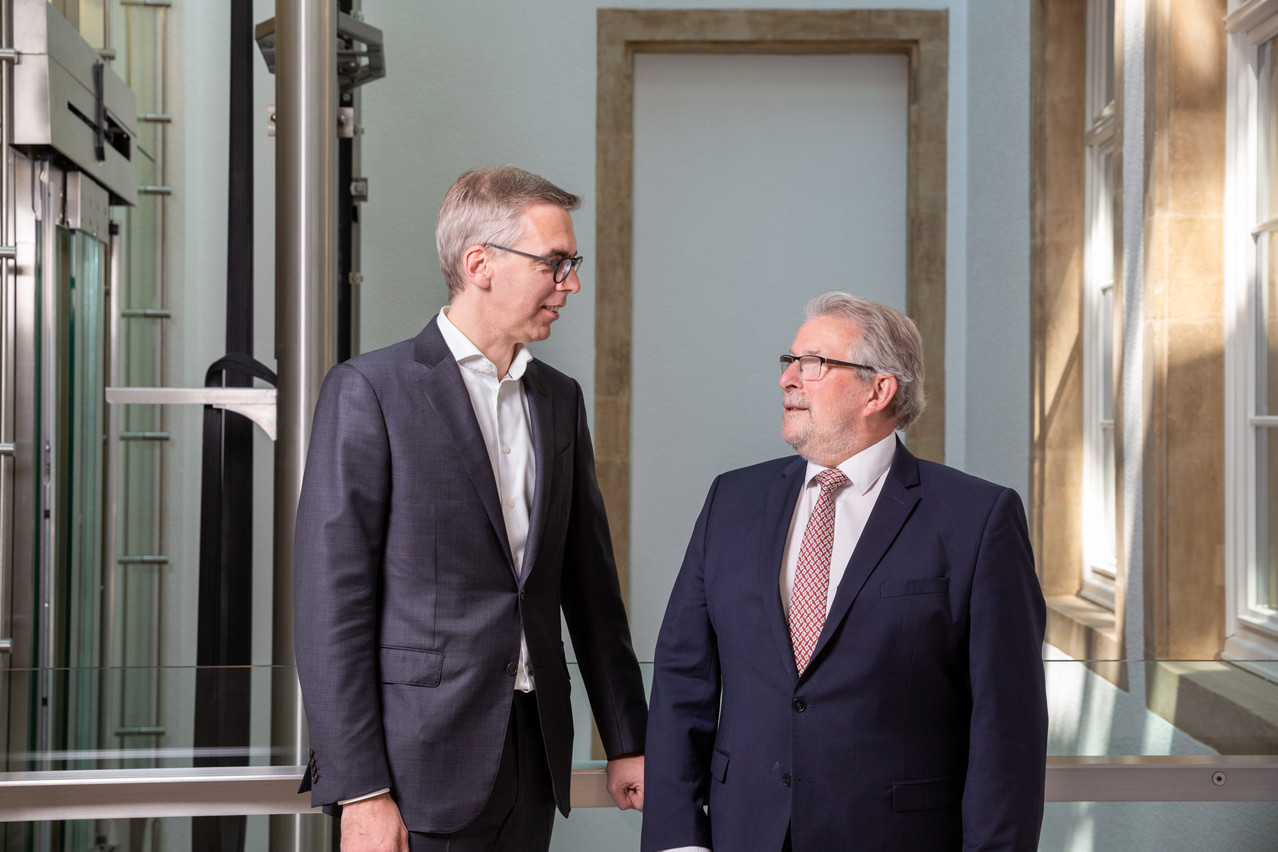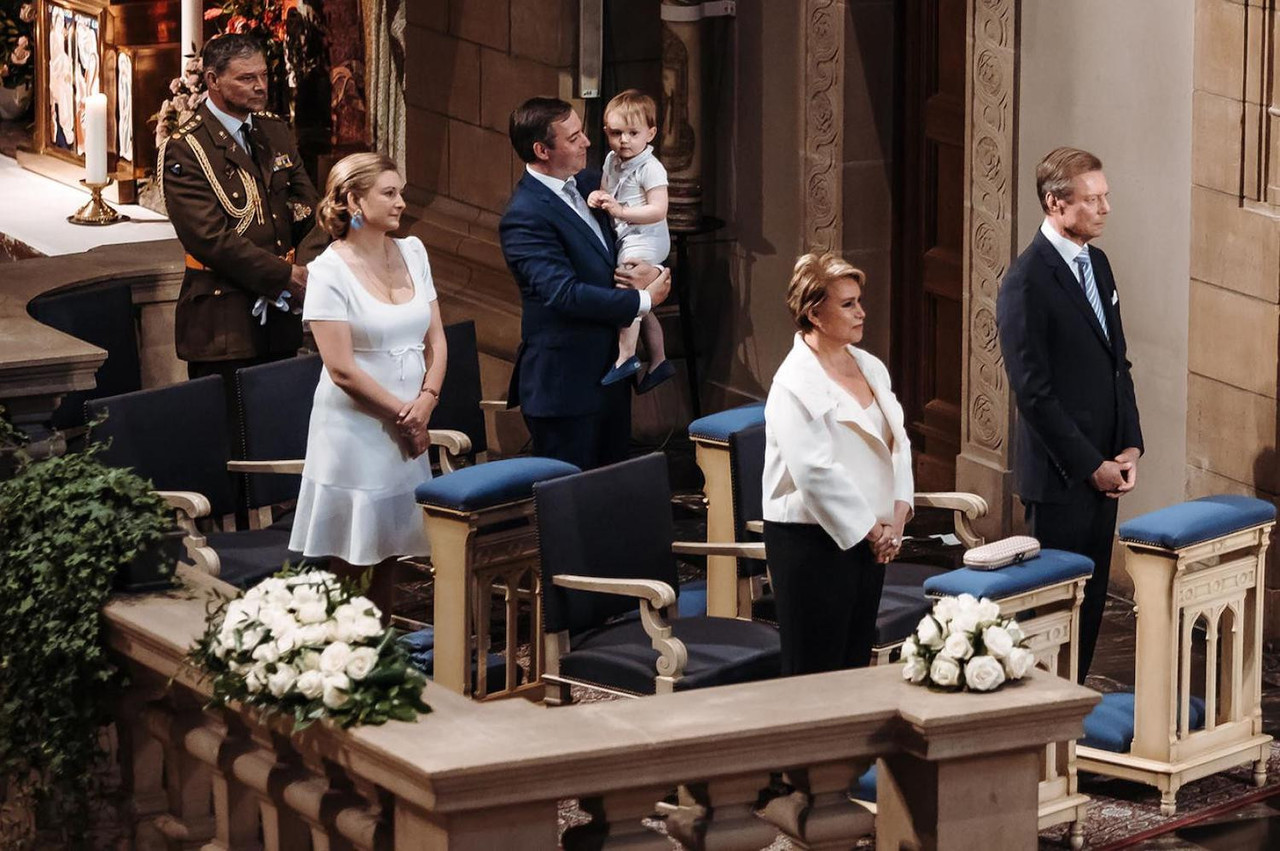Cordula Schnuer: Is a monarchy a timely form of state?
Léon Gloden: That’s a question we’ve been asked a lot, and my answer is that, for Luxembourg, it’s a form of state that fits. In other countries, it’s maybe a different discussion, but here in Luxembourg--based on our history, our demography, our position in Europe--I think the monarchy is the right form of state.
Mars Di Bartolomeo: We’re a parliamentary democracy and we’re a constitutional monarchy. That’s very important. The monarchy must respect our constitution and our institutions. Whether or not it’s timely--it belongs to Luxembourg. If we were to redraw the map, newly inventing the country as if it didn’t exist before, then there probably wouldn’t be a monarchy. But this country has a long history, a long tradition.
LG: An institution--and we’re talking about the monarchy as an institution--must adapt to the times. You must accept that there’s a modernisation process.
The institution opens a number of doors abroad, when we’re looking for new markets, new customers, to attract businesses. It has an aura, which is important for a small country. Another element is stability. We have a government and a head of state--the fact that one of these isn’t elected is a factor of stability.
The monarchy must respect our constitution and our institutions.
MDB: It’s not like in past centuries when the grand duke was the head of state ‘by the grace of God’. But the people, and surveys show this, support it. This is also due to how successive grand dukes and grand duchesses have fulfilled this office and led the country through difficult times.
The 2020 Waringo report into the monarchy criticised the functioning of the royal household, leading to a series of reforms. How satisfied are you with the follow-up to this report?
MDB: The reform of our constitution preceded the Waringo report. We had already discussed the administration of the royal household, the means needed for members of the royal household to represent the country. Up until now, the constitution still says that the grand duke receives gold ducats. The Waringo report was seriously done, and I’m glad about it. As befits the administration of the head of state, there is more transparency now.
LG: We’ve brought the institution into the 21st century. The institution is a business. It was important to respond to these points. We had some legal debates about details, and I have to say that I expected the government to inform us more regularly on the follow-up. But from what we hear, things are working. The rules are clear, and the discussions have calmed down.

Léon Gloden (l.) and Mars Di Bartolomeo--both rapporteurs in parliament about the reform of Luxembourg’s constitution Photo: Romain Gamba/Maison Moderne
A lot has been done, but where would you say is room for further improvement?
MDB: What is remarkable about these reforms that are underway is that the constitution moves closer to reality, that the institutions as a whole are strengthened. If there were things we think could immediately be improved, we would do that. It’s not so easy to answer this question unless you ask a minority in parliament who would say that they want to replace the monarchy with a republic.
LG: I cannot really give an answer because we looked at the topic for a long time. Constitutional reforms that need to be done quickly--such as removing the grand duke’s power to sanction laws in the framework of the euthanasia law… it’s not good when you have to make these isolated changes. The constitution is the foundation of our society.
MDB: If we opened a suggestions box, I’m sure that everyone would have an idea. But the idea is only good if it reaches a two-thirds majority in parliament.
Questions were raised about separating the grand duke’s role as head of state from the private person, for example, when he attended the opening of the Beijing Winter Olympics as a member of the International Olympic Committee but met president Xi Jinping for political talks. Can you split the person from the office?
MDB: That’s a good question. I think a head of state needs to be able to have a private life. With trips abroad where he carries the country in his DNA, that’s more difficult.
LG: It should have been communicated better externally from the beginning. I assume that this was discussed with the government.
The monarchy must earn respect. It’s not a given.
Looking at the next generation, what do you expect of them, and how they will carry on modernising the monarchy?
LG: The crown prince will be the first grand duke to act fully in the framework of the new constitution. The reform has put a democratic stamp on the monarchy and now it’s about the grand duke leaving his stamp on those changes. It’s a bit like building a company. Every CEO faces this challenge, and it will be interesting to see how he does this. Grand Duke Henri is different from Grand Duke Jean. It’s a generational question.
MDB: The big challenge, not only for the monarchy but for all leaders of this country, is to hold together and bring closer a community from many different origins…
We haven’t addressed this, but I don’t want to skip it--the role of the spouse, of the grand duchess, shouldn’t be confused with the head of state. But there’s a lot of potential for social commitment. It gives many possibilities. And the grand duchess does this well.
LG: The monarchy must earn respect. It’s not a given. Grand Duke Jean had a lot of respect because of his history. Grand Duke Henri has had to work harder. For the monarchy as an institution, it’s a challenge to, on the one hand, be close to the people. But people also want the glamour, the aura. They must strike this balance. I wouldn’t want to be in their place. It’s not easy.
You said that respect must be earned. How do you see the monarchy from the perspective of a younger generation, who are less attached to its history?
LG: It’s an interesting question. I have this discussion with my own children. I’d say young people think it’s cool, the pomp and circumstance. It’s a bit of the lifestyle they aspire to. The younger generation could be more attached to the monarchy than mine, which is again different from yours.
MDB: My generation was comparable to the climate movement… for us it was the peace movement and counterculture.
LG: Grand Duke Jean and Grand Duke Henri very early on were interested in the environment before it was even a topic at political level. Maybe that’s also how young people see it.
This article first appeared in the of Delano magazine.
